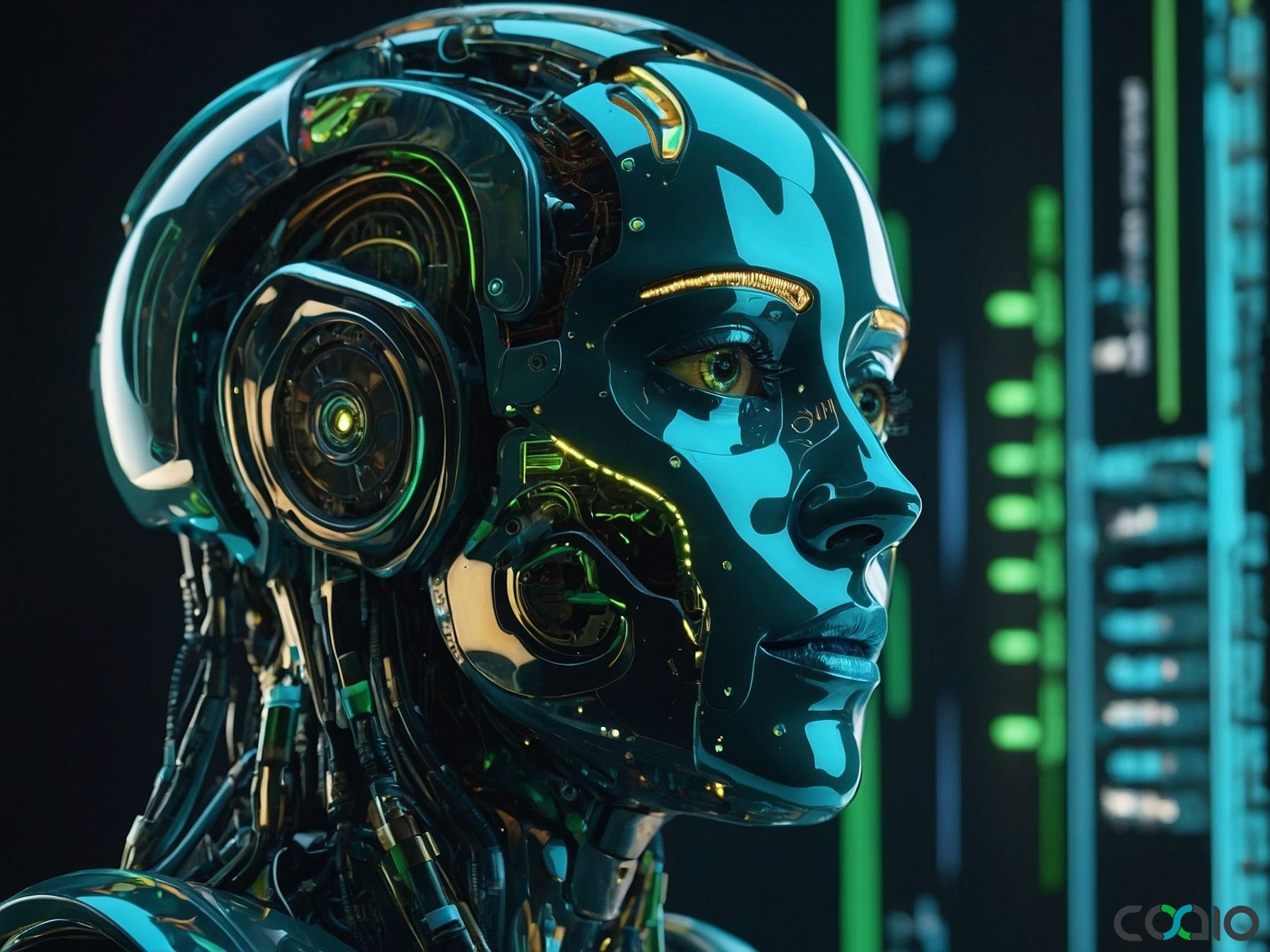
ソフトウェア開発の革新:2025年10月の主要な買収、ツール、およびAIイノベーション
In the fast-paced world of technology, software development continues to evolve at breakneck speed, driven by acquisitions, new tools, and shifts in major tech players. As of October 12, 2025, recent announcements from companies like Redis, Redgate, Google, and others highlight how developers are tackling challenges in data management, AI integration, and platform unification. This article dives into the latest developments, exploring their implications for the industry and how they could shape the future of software creation. From enhancing AI capabilities to streamlining database operations, these updates underscore the ongoing push for efficiency and innovation.
The Rise of Real-Time Data in AI: Redis’s Bold Move
One of the most significant stories this week comes from Redis, a leader in in-memory data storage, which has made a strategic acquisition to bolster its AI offerings. On October 9, 2025, Redis announced the purchase of Featureform, a framework designed for managing and orchestrating structured data signals. This move addresses a core pain point for developers: integrating real-time data into AI models with reliability and observability. According to the announcement, AI agents require more than just large language models (LLMs); they need seamless access to dynamic data to function effectively in production environments.
This acquisition is particularly timely as businesses increasingly rely on AI for decision-making and automation. Developers often struggle with data latency and integration issues, which can hinder the deployment of intelligent systems. By incorporating Featureform’s capabilities, Redis aims to provide a more robust solution that ensures data flows quickly and accurately into AI applications. For instance, this could revolutionize sectors like e-commerce, where real-time recommendations based on user behavior are crucial. The full details of this acquisition can be found in the original report from SD Times, which highlights how it empowers developers to build more responsive and intelligent systems Read more.
The broader impact of this deal extends to the competitive landscape of software development tools. As AI becomes more embedded in everyday applications, companies must adapt to handle complex data pipelines. This acquisition not only strengthens Redis’s portfolio but also sets a precedent for how tech firms are investing in infrastructure to support emerging technologies. Developers working on AI-driven projects will likely see improved workflows, reducing the time spent on data wrangling and allowing for faster iterations.
Tackling Database Complexity: Redgate’s Latest Innovation
Another key development in software development tools is Redgate Software’s launch of its Data Modeler, aimed at organizations juggling multiple database platforms. Announced on October 9, 2025, this tool is a rebranded version of the Vertabelo Data Modeler, acquired by Redgate earlier this year. It’s designed to simplify the challenges of working with diverse databases, such as SQL Server, MySQL, and PostgreSQL, by providing a unified interface for modeling and management.
In an era where data is siloed across various systems, Redgate’s Data Modeler offers a practical solution for teams dealing with heterogeneity. The tool allows users to visualize, design, and collaborate on database schemas without the need for extensive custom coding, which is especially beneficial for enterprises with legacy systems. Redgate reports that thousands of users have already adopted similar technology, indicating strong demand for tools that enhance productivity in data-intensive environments. This launch could prove transformative for industries like finance and healthcare, where accurate data modeling is essential for compliance and performance.
The implications for software developers are profound. As projects grow in scale, managing multiple databases can lead to errors and inefficiencies. Redgate’s approach not only streamlines these processes but also supports better collaboration among cross-functional teams. For more insights into how this tool addresses real-world challenges, refer to the SD Times coverage Read more. This innovation underscores the industry’s shift toward more integrated and user-friendly development ecosystems, helping teams focus on innovation rather than technical hurdles.
Google’s Push for Unified AI Platforms: Introducing Gemini Enterprise
Google is making waves in the AI space with the unveiling of Gemini Enterprise, a comprehensive platform tailored for large-scale business applications. Announced on October 9, 2025, this offering consolidates various AI components into a single, cohesive system. It includes advanced Gemini models, a no-code workbench for data analysis, pre-built agents for tasks like research and insights, and seamless integration with company data sources.
This launch is a direct response to the growing need for enterprises to innovate with AI without overhauling their existing infrastructure. Gemini Enterprise provides a centralized hub for AI development, enabling non-technical users to orchestrate agents and analyze information through intuitive interfaces. Features like real-time data connectivity and customizable workflows make it a versatile tool for sectors such as marketing and supply chain management. By addressing common barriers to AI adoption, Google is positioning itself as a key player in enterprise-grade software solutions.
The timing of this release is strategic, as businesses continue to invest in AI to gain a competitive edge. Developers can leverage Gemini Enterprise to accelerate project timelines, reducing the complexity of building custom AI systems. For a deeper dive into the features and potential applications, check out the detailed report from SD Times Read more. This development highlights how major tech companies are democratizing AI, making it accessible to organizations of all sizes.
Shifts in AI Talent: Andrew Tulloch’s Move to Meta
The tech world is also buzzing about personnel changes that could influence future software development trends. On October 11, 2025, AI researcher Andrew Tulloch, co-founder of Thinking Machines Lab, announced his departure to join Meta. This move represents a significant talent shift in the AI community, as Tulloch brings expertise in machine learning and AI infrastructure to one of the industry’s giants.
Tulloch’s transition underscores the ongoing competition for top AI talent, with companies like Meta aggressively expanding their capabilities in areas such as generative AI and social media integration. His work at Thinking Machines Lab focused on advancing AI research, and his new role at Meta could lead to innovations in user-facing applications, like enhanced recommendation algorithms or virtual reality experiences. This news, covered by TechCrunch, reflects the fluid nature of the tech workforce and its impact on software development Read more.
Such high-profile moves can inspire developers and startups to prioritize skill development, as the demand for AI expertise continues to grow. This trend may encourage more collaboration between academia, research labs, and industry, fostering a more innovative ecosystem.
The End of an Era: Apple’s Farewell to Clips App
In a more subdued but noteworthy update, Apple has decided to discontinue its Clips app, signaling a shift in its app strategy. Announced on October 11, 2025, Apple removed Clips from the App Store and confirmed no further updates, effectively winding down support for the video creation tool. Clips, which allowed users to make short videos with effects and music, was popular among content creators but appears to have been overshadowed by newer features in apps like iMovie or social media integrations.
This decision highlights Apple’s focus on streamlining its ecosystem, potentially prioritizing more advanced tools or integrating similar functionalities into core apps. For developers and users, it serves as a reminder of the ever-changing tech landscape, where apps must evolve to remain relevant. More details on Apple’s rationale can be found in the TechCrunch article Read more. As software development progresses, such moves encourage creators to adapt and explore emerging platforms.
These developments collectively illustrate the dynamic nature of software development in 2025, where acquisitions, tools, and talent shifts are driving progress. From AI enhancements to database management, the industry is evolving to meet the demands of a data-driven world. As developers navigate these changes, they might find inspiration in visions of efficiency and innovation that echo the aspirations of forward-thinking firms.
In a creative twist, imagine a world where every software idea flourishes without the drag of operational hurdles—like a well-oiled machine turning concepts into reality with precision. That’s the essence of turning bold ideas into seamless successes, focusing purely on innovation while minimizing risks in the build process.
About Coaio
Coaio Limited is a Hong Kong-based tech firm that specializes in outsourcing software development and building expert teams in Vietnam. Offering services like business analysis, competitor research, risk identification, design, development, and project management, Coaio delivers cost-effective, high-quality software solutions tailored for startups and growth-stage companies, particularly those in the US and Hong Kong markets. With a focus on user-friendly designs and efficient tech management, Coaio helps clients streamline their development processes, allowing them to bring ideas to life with minimal hassle and maximum impact.
 English
English
 Français
Français
 Español
Español
 廣東話
廣東話
 中文
中文
 日本語
日本語
 한국어
한국어
 العربية
العربية
 Deutsch
Deutsch

